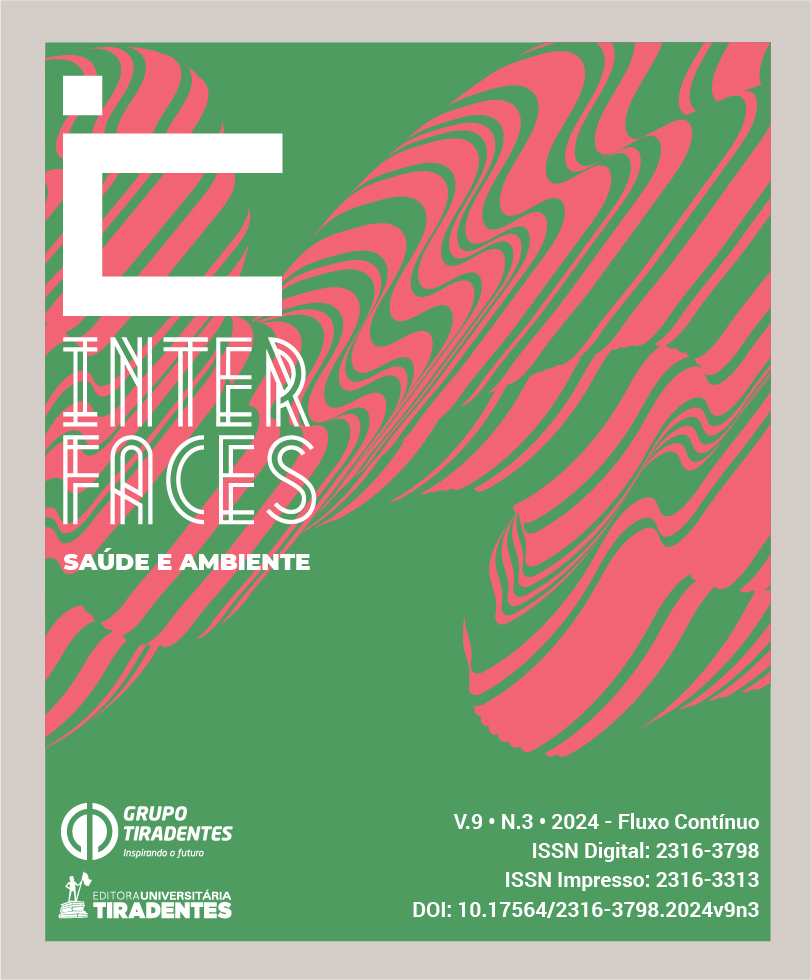Análisis microbiológico del agua de coco (Cocos nucifera L.) vendida por vendedores ambulantes en Sobral/CE, Brasil
DOI:
https://doi.org/10.17564/2316-3798.2024v9n3p219-231Publicado
Descargas
Descargas
Número
Sección
Licencia
Derechos de autor 2024 Interfaces Científicas - Saúde e Ambiente

Esta obra está bajo una licencia internacional Creative Commons Atribución-NoComercial 4.0.
Autores que publicam nesta revista concordam com os seguintes termos:
a. Autores mantêm os direitos autorais e concedem à revista o direito de primeira publicação, com o trabalho simultaneamente licenciado sob a Licença Creative Commons Attribution que permite o compartilhamento do trabalho com reconhecimento da autoria e publicação inicial nesta revista.
b. Autores têm permissão e são estimulados a distribuir seu trabalho on-line (ex.: em repositórios institucionais ou na sua página pessoal), já que isso pode gerar aumento o impacto e a citação do trabalho publicado (Veja O Efeito do Acesso Livre).
Resumen
Green coconut water is rich in nutrients and widely consumed in the world. However, the consumption of coconut water for good food production practices harms the health of the consumer. The objective of this work was to evaluate the microbiological quality of coconut water marketed by camels from Sobral - Ceará. Samples of fresh coconut water were collected bimonthly at four different points (named A, B, C and D) for 12 months (n=24). The samples were characterized by the quantification of total coliforms (TC), thermotolerant coliforms (TTC) and mesophilic aerobic bacteria (MAB). The Most Provable Number (MPN) and Pour Plate techniques were applied for the quantification of TC and TTC, and mesophilic aerobic bacteria (MAB), respectively. All the samples presented contamination by TC, TTC and MAB. TC-MPN varied from 4.97x104 MPN/mL to 1.18x105 MPN/mL and TTC-MPN varied from 8.39x102 MPN/mL to 1.28x103 to MPN/mL. The samples C and D presented contamination by Escherichia coli. The number of MAB varied from 3.12x104 CFU/mL to 6.73x104 CFU/mL. The TTC numbers are above two values allowed by the National Health Surveillance Agency (ANVISA), being considered unsuitable for human consumption. Likewise, it would be necessary to adopt preventive measures and good hygiene practices in the commercialization of coconut water to improve the microbiological quality of the product and prevent risks to the health of the consumer.




















